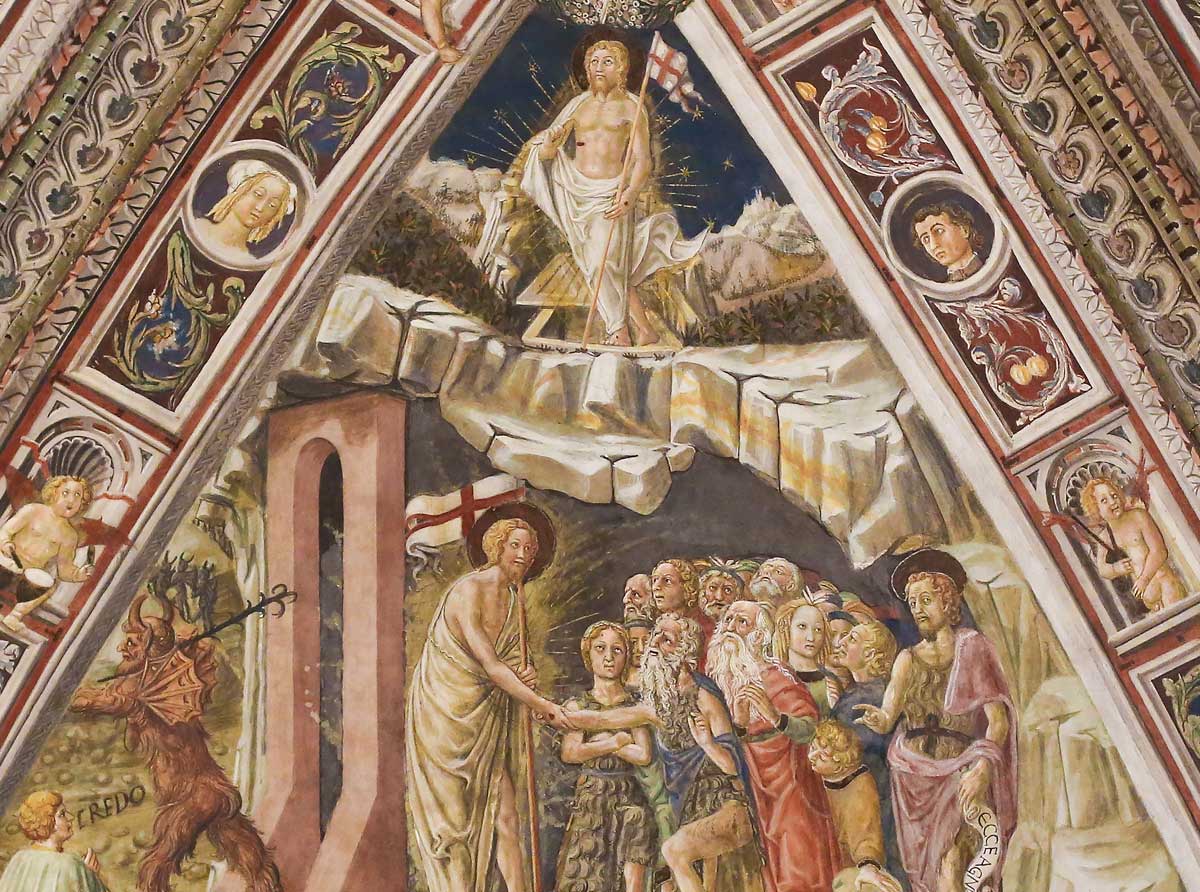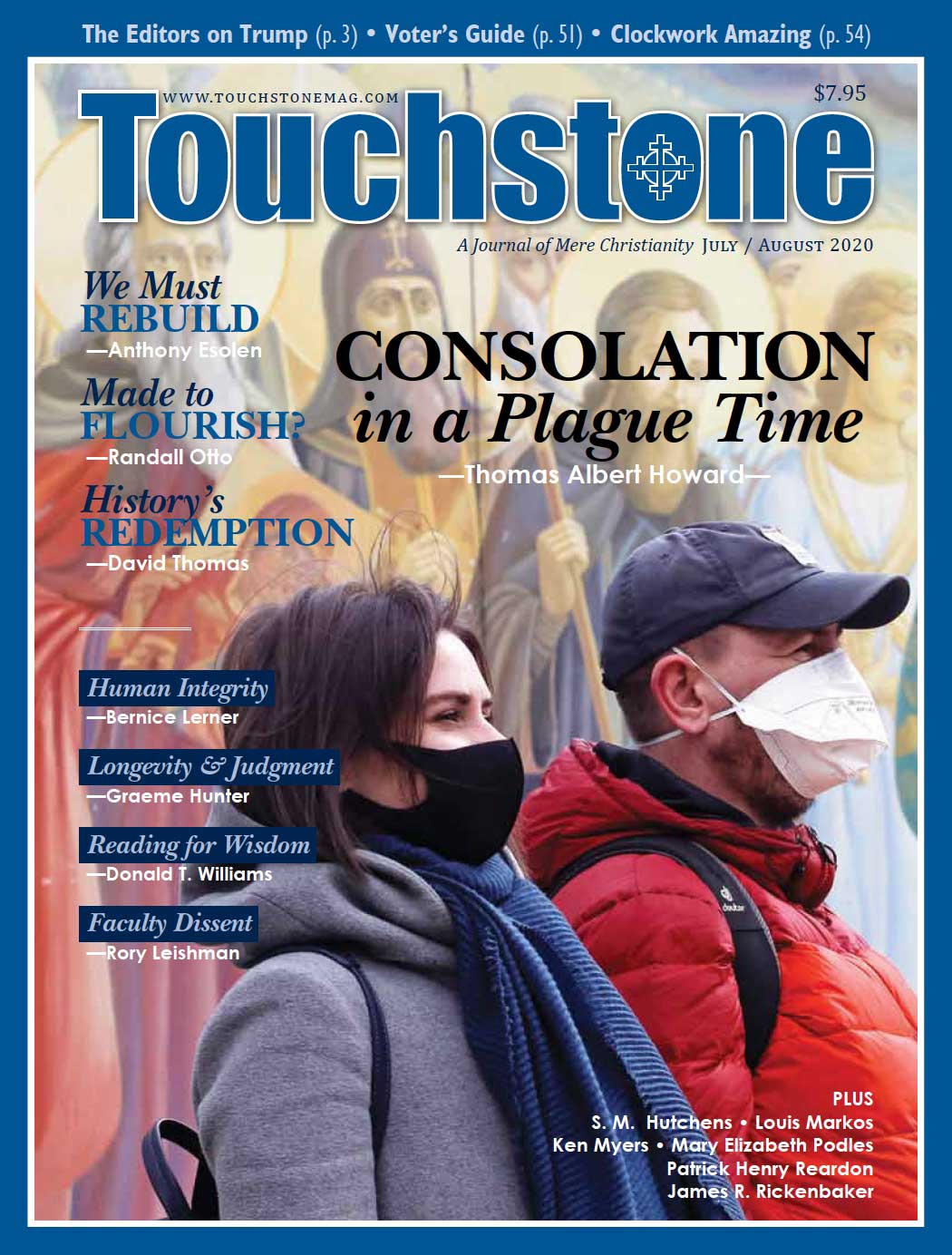View
Literature for Wisdom
Donald T. Williams on Reading in the Service of Christian Living
Can literature serve a life of Christian wisdom? If so, how? For literature outside of Scripture is surely a mixed bag, and some Christians have thought it should be avoided as "lies of the poets."
As a minister of the gospel and college professor who has split his professional life neatly down the middle between the study of theology and of literature, I had better hope that literature can aid us in such a high calling! Theology, I want to say, is the queen of the sciences, and philology is her handmaid. (Yes, I spelled that right. Philosophy is also on the handmaid staff, but because God gave us his revelation in a book, philology, the study of literature from the standpoint of its language, is the head of the staff.) Scripture is, after all, made of literature.
One obstacle we face in this discussion, however, comes from the man we usually regard as the true Christian literary apologete: C. S. Lewis. He famously dismissed certain people who were pursuing a goal uncomfortably similar to ours (at least on the surface) as pompous asses. "Those who read poetry to improve their minds," he warned, "will never improve their minds by reading poetry" ("Lilies that Fester," The World's Last Night and Other Essays, 35). He rejects in no uncertain terms "the belief that all good books are good primarily because they give us knowledge, teach us 'truths' about 'life'" (An Experiment in Criticism, 74). He dug in his heels against the view, popular in his day, that the study of culture (including literature) could make us better human beings and that the academic study of literature could thus prepare young men to be leaders of society. "Culture is a bad qualification for a ruling class," he wrote, "because it does not qualify men to rule. The things we really need in our rulers—mercy, financial integrity, practical intelligence, hard work, and the like—are no more likely to be found in cultured persons than anyone else" ("Lilies," 46).
Proper Reading
It sounds like Lewis is denying the very validity of our quest. But this cannot be. He was not one of the anti-didactic Moderns. He said approvingly of Spenser that "his business was to embody in moving images the common wisdom" (English Literature in the Sixteenth Century, 386) and that "to read him is to grow in mental health" (Allegory of Love, 359). It sounds as if Lewis is praising Spenser for offering precisely what he had previously warned us not to look for.
So what is going on here? Lewis certainly finds wisdom in literature. He allows that "the great literary artist cannot be a man shallow either in his thoughts or his feelings. . . . [His book] will be impregnated with all the wisdom, knowledge, and experience the author has" (Experiment, 81–82). Rather, Lewis is wisely warning us that we will only be able to benefit from that wisdom if we approach literary texts as literature, as well-written stories, poems, or plays received as such—not as mere narrative filler in which little nuggets of wise propositional content have been hidden or imbedded to be ferreted out.
Lewis explains what he means with an analogy to athletics. "The playing of games will ordinarily contribute to a man's bodily perfection; but if that becomes the sole or complete reason for playing them they cease to be games and become 'exercise'" (Experiment, 9). It is an apt analogy: literature that becomes mere exercise will probably not continue to be read, and certainly will not be responded to on a deep level. But this false approach is more than just a motive killer:
To come to the particular game with nothing but a hygienic motive or to the tragedy with nothing but a desire for self-improvement is not really to play the one or to receive the other. Both attitudes fix the ultimate attention on oneself. Both treat as a means something which must, while you play or read it, be accepted for its own sake. (Experiment, 9).
The story, in other words, cannot merely be mined, not even for wisdom; it must be lived imaginatively and vicariously if we are to receive the pleasure or the wisdom that it has the potential to give us. To "use" the story as a means to an end is ironically to miss that end, or at least miss it in its fullness. Before we can judge the text aesthetically or morally, we must first "receive" it as a story or poem. "The first demand any work of art makes on us is surrender" (Experiment, 19).
If we are prepared to make that surrender, then and only then can we explore the service literature can render to Christian wisdom.
Donald T. Williams is Professor Emeritus of Toccoa Falls College. He stays permanently camped out on the borders between serious scholarship and pastoral ministry, between theology and literature, and between Narnia and Middle-Earth. He is the author of fourteen books, including Answers from Aslan: The Enduring Apologetics of C. S. Lewis (DeWard, 2023). He is a contributing editor of Touchstone.
bulk subscriptions
Order Touchstone subscriptions in bulk and save $10 per sub! Each subscription includes 6 issues of Touchstone plus full online access to touchstonemag.com—including archives, videos, and pdf downloads of recent issues for only $29.95 each! Great for churches or study groups.
Transactions will be processed on a secure server.
more on literature from the online archives
more from the online archives

27.6—Nov/Dec 2014
Tales of Forbidden Stereotypes
Real-Life Men & Women & the Tragic Loss of Human Comedy by Anthony Esolen

14.6—July/August 2001
The Transformed Relics of the Fall
on the Fulfillment of History in Christ by Patrick Henry Reardon
calling all readers
Please Donate
"There are magazines worth reading but few worth saving . . . Touchstone is just such a magazine."
—Alice von Hildebrand
"Here we do not concede one square millimeter of territory to falsehood, folly, contemporary sentimentality, or fashion. We speak the truth, and let God be our judge. . . . Touchstone is the one committedly Christian conservative journal."
—Anthony Esolen, Touchstone senior editor













